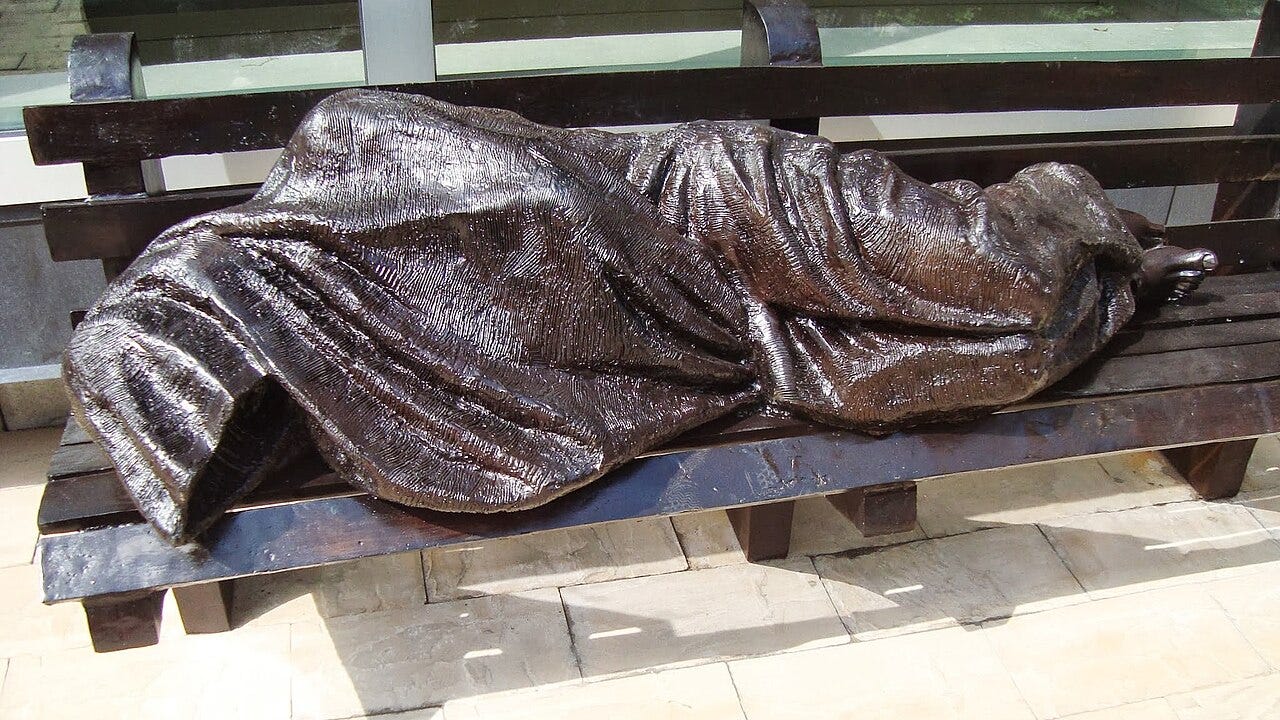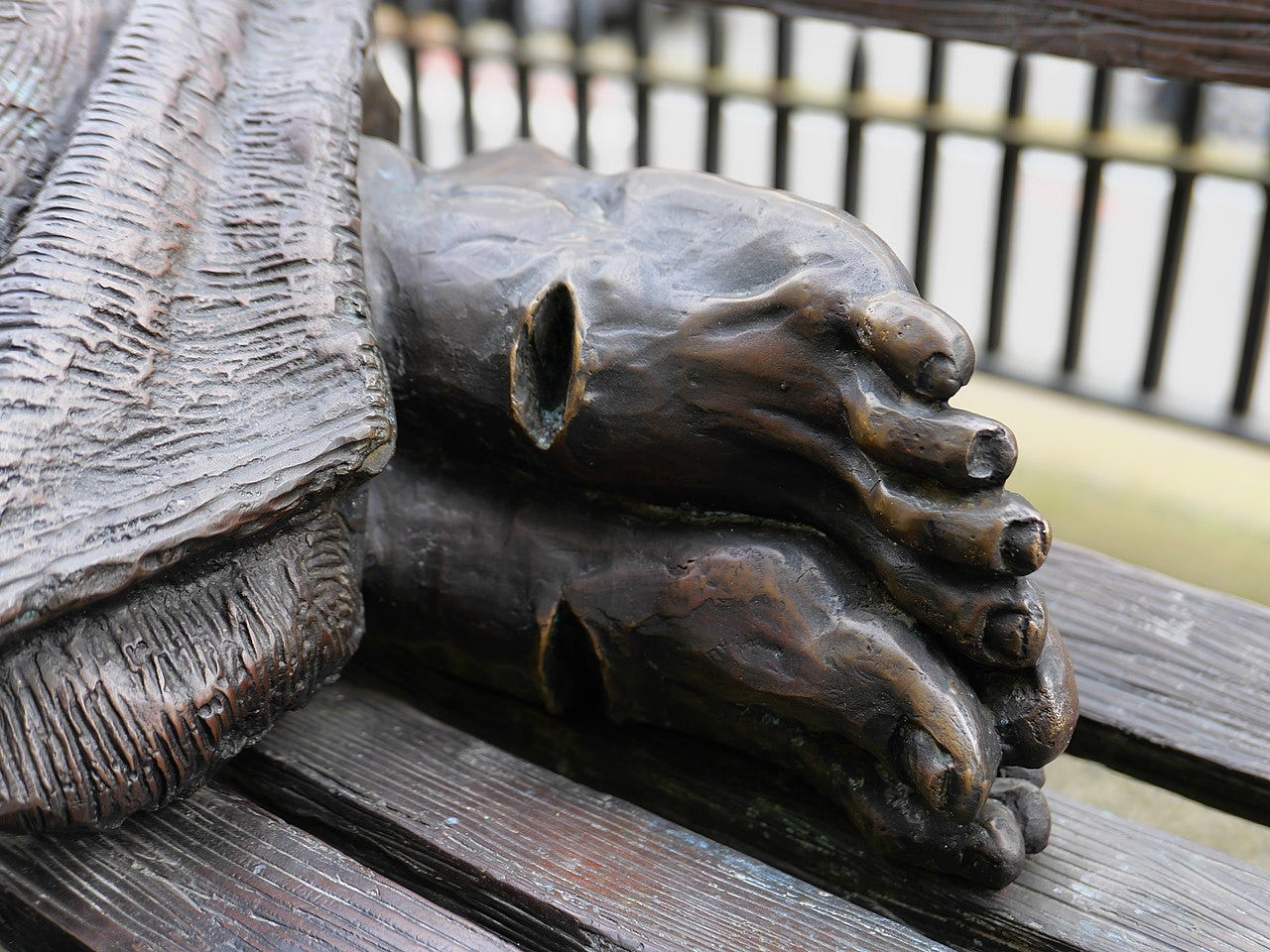A Radical Commandment
(Photo Credit By Unnamed - https://www.hippopx.com/en/homeless-statue-city-streets-307641, CC0, https://commons.wikimedia.org/w/index.php?curid=127228593)
This is a sculpture called Homeless Jesus. It was original installed at a theological college in Canada, and about fifty copies of it have been put up around the world.
(Photo credit: By Membeth - Own work, CC0, https://commons.wikimedia.org/w/index.php?curid=86275257)
The wounds on the statue’s feet depict the wounds of the crucifixion. The artist meant this to be a physical translation of the scripture "And the King shall answer and say unto them, Verily I say unto you, Inasmuch as ye have done it unto one of the least of these my brethren, ye have done it unto me." (Matthew 25:40)
This week I am studying earlier chapters of the gospel, where we learn of a commandment “Therefore all things whatsoever ye would that men should do to you, do ye even so to them: for this is the law and the prophets” (Matthew 7:12)
I thought that to be a reasonable commandment, and something that anyone could abide be. It is really just the golden rule, treat others how you would like to be treated.
A peculiar thing happened with the Homeless Jesus statues that makes me think that the idea of the golden rule may be a little bit more radical than I first understood it to be. In multiple cities all across the United States, after copies of this statue were installed, people began calling the police to report a homeless person sleeping on a bench, in one instance this statue was reported for vagrancy less than 20 minutes after being installed.
Some people may consider an afternoon nap in the park a luxury, laying in the green grass under a deep blue sky, perhaps after finishing a workout in the park, during a break from their job, or even just taking a few minutes to relax. It is pretty awesome. I can’t imagine any circumstance where this would necessitate calling the police. While I have enjoyed a few luxury naps in the park, some people sleep in the park, tragically, out of necessity. What is it that changes, that when a person is in need, they are no longer able to enjoy a period of rest in a park?
I think the radical part of the commandment, “whatsoever ye would that men should do to you, do ye even so to them” is that this commandment applies to everyone. The “them” part is non exclusionary. Without knowing they do it, I think people cast each other into different strata, treating only those who could have any significant reciprocal effect on their own lives with the kindness they themselves would expect, ignoring those who they have arbitrarily deemed a lesser status.
In bigger cities around where I live there are a lot of people that in their own lives and spheres of influence surely hold significant positions. Some are real lover of uppermost rooms and chief seats types, who seem to enlarge their phylacteries by putting others down. You have probably seen somebody like this interacting with interacting with workers in the service industry, or maybe the sort that acts differently when the boss is in the room, but is an entirely different person when it is only their subordinates. For them, the commandment is so often taken as “be kind to only those who can be kind in return.” Feeling perhaps that if the person has no ability to have a negative influence on their life, they aren’t worried with how that person may feel about them in return.
There are of course others, who are kind to everyone around them, no matter their circumstances. They are kind to others, giving no thought or worry as to the other’s ability to reciprocate the kindness, or for the level of influence the other may have on their lives.
Have you ever gone out with a friend or coworker who treats a kid making minimum wage like garbage because there was too much ice in his soda? Have you ever gone out with a friend or coworker who makes everyone, even the bus boy cleaning up dishes smile? Which one do you want to spend time with? Which one do you want to be? Which one would Christ want you to be?



